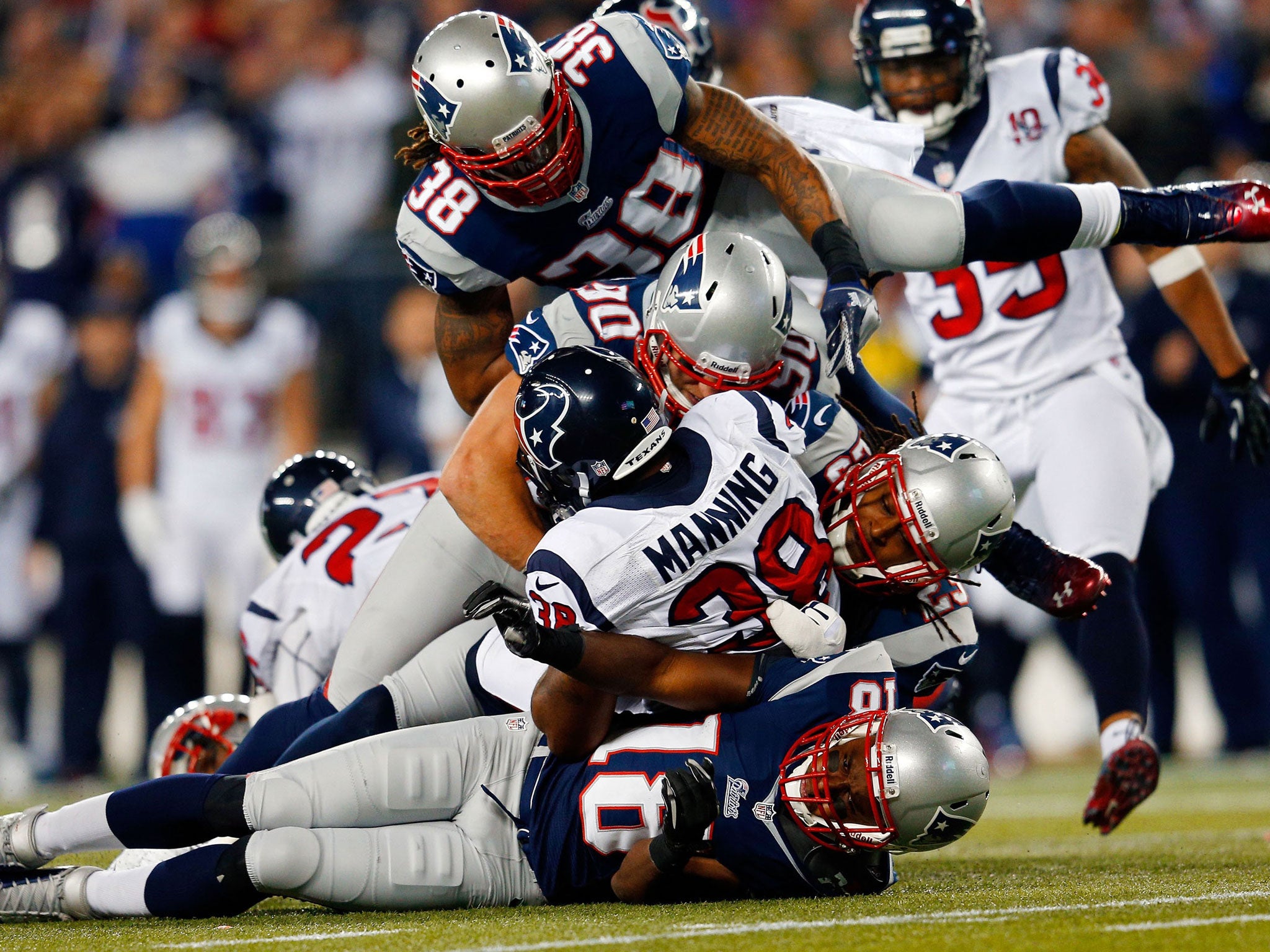American Football: NFL gets off lightly as concussion lawsuits are packed away
Deal over suit brought by former players means care can be paid for immediately... but will it change anything on the field?

With Thursday's blanket settlement of concussion-related lawsuits brought by thousands of former players, the NFL will embark on its new season next weekend free of the shadow of a legal thundercloud that could have threatened the very future of the America's richest and most popular major league sport.
Under the deal worked out by an independent arbitrator, the league will pay a total of $765m (£495m), including a $675m fund to compensate ex-players and the families of former players who have suffered brain damage, a $75m lump sum to cover a 10-year programme of regular medical testing, and a $10m fund for research and education. Legal fees could bring the NFL's total bill to around $1bn.
But by almost any measure the settlement – which still must be approved by the federal judge overseeing the class action suit involving some 4,500 former players – appears favourable to the league. The overall sum, staggered over 20 years, is a fraction of the NFL's near-$10bn annual revenue. In all, it will cost each of the 32 franchises an average $25m or $30m, roughly a 10th of their average annual operating revenue. Cumulatively, the payout is less than the least valuable of them (the Oakland Raiders, worth around $825m according to Forbes).
Had the suit gone to trial, the league not only could have faced damages of several billion dollars, had the judgement gone against it. The court proceedings might have unearthed highly embarrassing documents, and put a harrowing procession of mentally ill players on the witness stand. The public clamour could have been such as to threaten the game in its present form.
That danger has now been averted. In the settlement, moreover, the league is not admitting culpability – that it deliberately played down the dangers of a physically brutal sport and concealed the risks from the players, as the lawsuit claimed. Coupled with the NFL's own, if belated, public acknowledgement of these perils, and the steps it has already taken to reduce them, this provision will make it much harder for similar suits to be brought in future.
The decisive factor, however, was clearly the realisation by stricken former players and their families that they simply could not wait the five years or more until a final, more lucrative judgement, and resolution of the appeals that would surely have followed.
This week's deal means they will be eligible for help at once. Payments will be capped at $5m for ex-players with ALS (amyotrophic lateral sclerosis, or Lou Gehrig's disease), $4m for those with CTE, the degenerative brain disease also suffered by some boxers and ice hockey players, and $3m for former players with dementia.
Christopher Seeger, the plaintiffs' lead attorney, described the outcome as an "extraordinary agreement" that would provide "immediate care and support to retired players and their families". It would do so, moreover, "faster and at far less cost, both financially and emotionally, than could have ever been accomplished by continuing to litigate".
Not everyone agreed, however. According to Kevin Mawae, a former president of the NFL Players' Association, or union, the settlement represented "a big loss for players, now and in the future". The main thing, however, said the former Washington Redskins and Super Bowl-winning quarterback Mark Rypien, was that "if the need arose, the cost of the care would be taken care of, and that our health will be monitored".
The suit originated in 2011, and was formally filed in June last year in Philadelphia on behalf of 2,000 ex-players. Since then that number has more than doubled, even as the NFL reversed years of trying to ignore the concussions problem, amending the rules to outlaw the most dangerous forms of collision and focusing as never before on safer helmets.
But how much will change on the pitch remains to be seen. The NFL has a relentlessly macho culture in which playing through pain is the norm, and where a concussed player is said merely to have "had his bell rung". Doctors on the touchline are supposed to decide whether a player is fit enough to continue, but their judgements are often coloured by the coach's reluctance to lose a key player – and the latter's determination to continue, and not let down his team-mates.
Above all, perhaps, bone-crushing, skull-jarring hits are one of football's biggest selling points to fans. Entire highlight reels are filled with them. For its millions of followers, an NFL without them would not be the same game.
Subscribe to Independent Premium to bookmark this article
Want to bookmark your favourite articles and stories to read or reference later? Start your Independent Premium subscription today.

Join our commenting forum
Join thought-provoking conversations, follow other Independent readers and see their replies